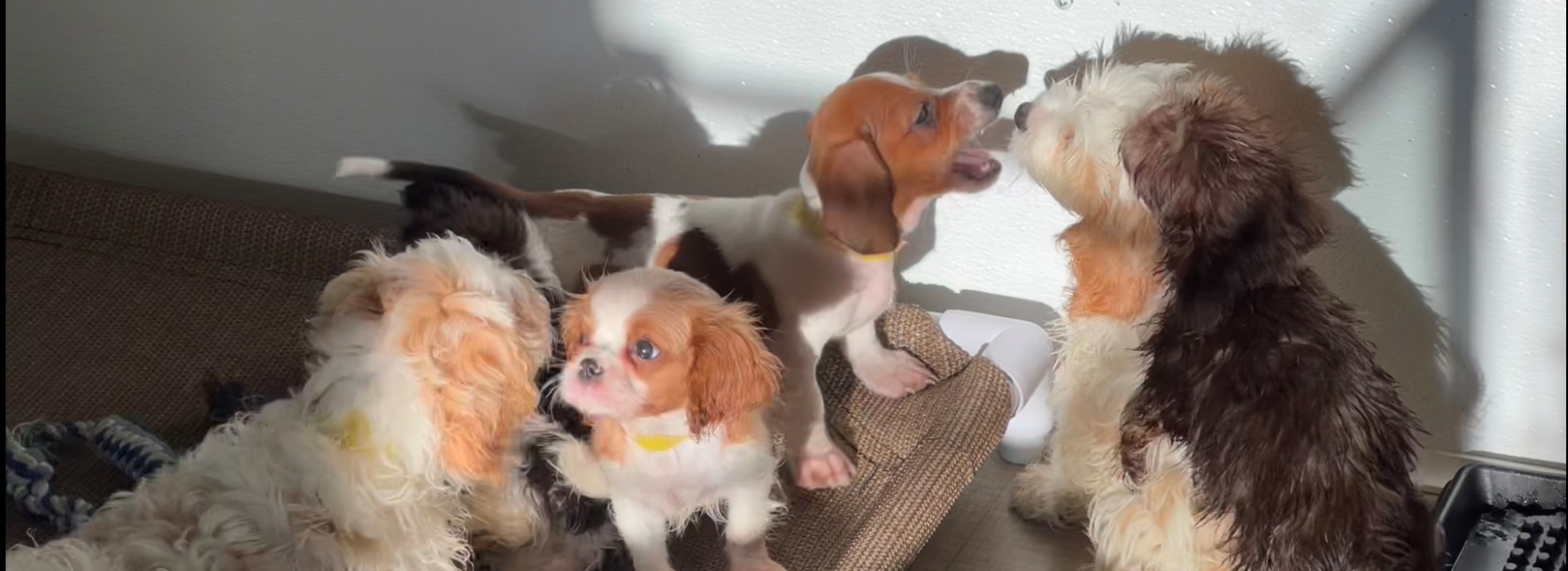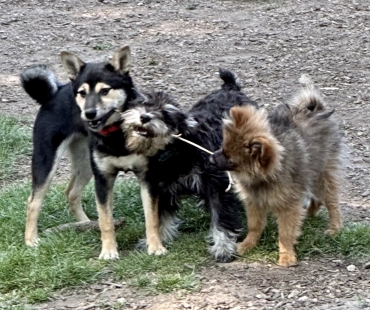
We grow and develop as a team!
We learn from each other.
We exercise together

Puppy Pre School is the way for us to become ready for the happy lives ahead!
Introduction:
The early stages of a puppy's life are critical for their long-term physical, mental, and social well-being. From the age of 5 to 16 weeks, puppies undergo significant growth and development. In this blog post, we will delve into the importance of proper puppy development during this period and highlight the invaluable role of pack socialization in their journey towards becoming well-adjusted and balanced adult dogs. Understanding these aspects is essential for every puppy owner, as it lays the foundation for a lifetime of happiness and companionship.
Primary Focus Areas:
Physical Development: During the 5 to 16-week period, puppies experience rapid physical growth and development. Their bodies are forming, bones are maturing, and muscles are strengthening. Adequate nutrition, regular veterinary check-ups, and a safe and stimulating environment are crucial to support their physical development. Providing a balanced diet, age-appropriate exercise, and proper grooming practices ensure they grow into healthy and robust adult dogs.
Cognitive and Behavioral Development: Puppies' cognitive and behavioral development during this period is remarkable. They are highly receptive to learning and experiences, which shape their future personalities and behaviors. It is a critical time for socialization, exposure to various stimuli, and positive reinforcement training. Engaging in interactive play, introducing them to different environments, and providing mental stimulation through puzzles and toys help develop their cognitive abilities and enhance their problem-solving skills.
Emotional and Social Development: Puppies are inherently social animals, and their early experiences with other puppies and humans significantly impact their emotional and social development. This period is ideal for introducing puppies to a variety of people, animals, and environments to foster their confidence and resilience. Positive interactions and gentle handling build trust and create a solid foundation for healthy relationships with humans and other dogs. It is during this time that they learn important social cues, boundaries, and how to communicate effectively.
Pack Socialization: Recognizing that dogs are pack animals, understanding the importance of pack socialization is key. Interacting with littermates and other puppies in a supervised and controlled environment allows them to develop essential skills, such as bite inhibition, body language comprehension, and appropriate play behavior. Pack socialization provides valuable opportunities for learning social hierarchies, cooperation, and conflict resolution, all of which contribute to their overall emotional well-being and future interactions with other dogs.
Long-Term Benefits: Investing time and effort in proper puppy development and pack socialization yields numerous benefits in the long run. Well-socialized puppies grow up to be confident, adaptable, and well-behaved adult dogs. They are more likely to have reduced anxiety and fear-based behaviors, exhibit better impulse control, and form strong bonds with their human companions. Additionally, they are better equipped to handle new experiences, changes, and unfamiliar situations throughout their lives.
Conclusion:
The age of 5 to 16 weeks is a critical period in a puppy's life, shaping their physical, cognitive, emotional, and social development. Proper nutrition, veterinary care, positive training methods, and exposure to various stimuli contribute to their overall well-being. Furthermore, recognizing the significance of pack socialization allows puppies to develop crucial social skills and ensures they become well-adjusted members of both the canine and human communities. As responsible puppy owners, it is our duty to provide the necessary support, guidance, and socialization experiences to help our furry companions thrive and grow into loving, confident, and socially adept adult dogs.
Post a Comment